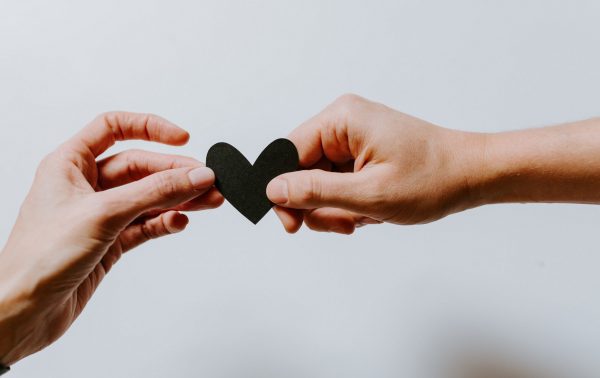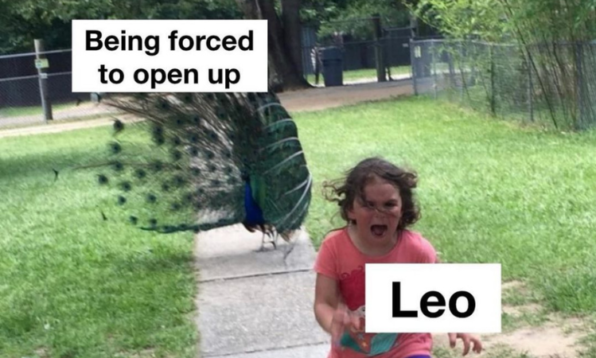Walking out of an abusive relationship is easier said than done. Unfortunately, it is not as easy as walking out of a door. When someone has known nothing but abuse for the longest period of time, it is very easy for them to bond with their abuser. Trauma bonding is when a person forms an emotional attachment with their abuser, so much so that they feel compelled to stay with their abuser. Unlike what a lot of people think, trauma bonding is not a bond between people who have been through traumatic experiences, whether similar or otherwise. Trauma bonding is strictly a relationship between a victim and their abuser. If you suspect you have trauma bonded to someone, here are some signs to look out for.
1. You often overlook the red flags in your partner

In the beginning, a trauma bond promises love, trust, and safety. Chances are high that your partner would be love bombing you, using manipulation and lies to get you to do what they want, and pretend to like the same things as you. This would make you feel like you’ve found the perfect partner. But, when the mask falls off, you realise that your boundaries are already crossed. By now, you probably think that you can prolong the initial thrill and excitement of the honeymoon phase and decide to stay with your partner despite their red flags.
Related: Love Bombing: What It Is And How To Know If You Are Being Attacked
2. You defend your partner despite their wrongdoings
More often than not, if you are trauma bonded with someone, you are likely to shift the blame from your partner to yourself. No matter how abusive your partner is, you find a way to defend them. You will often find yourself using statements like, “He loves me, that’s why he did it”, and “I did something wrong, that’s why he got angry.”
3. You are unhappy yet unable to end the relationship

You may be feeling drained and exhausted, but despite that, you don’t want to leave your abuser. That’s a glaring sign of a trauma bond. There is no open communication in the relationship and you feel like you can’t share your thoughts and feelings freely. If you ever tell your partner how their actions are abusive or hurtful, they tend to gaslight you into believing you are crazy or making things up. Despite all of this, you still feel emotionally stunted at the thought of leaving your abuser.
Related: What Is Gaslighting? The Signs And Tactics To Recognise This Form Of Abuse
4. You feel a strong emotional attachment to your abuser
One of the main reasons trauma bonds happen is that people tend to romanticise the idea of intense relationships. They believe relationships that are “passionate” run hot and cold and that’s how it should be. This also leads to one forming an emotional attachment to their abuser because they think the way their abuser behaves is the only way to show love. If you find yourself feeling grateful for every small good deed your partner does and are willing to go to any lengths to please them, that’s a red flag.
5. You often compromise your principles to appease your partner

A trauma bond is often about losing yourself in order to please your abuser. You may find yourself doing some things you wouldn’t otherwise do to make your partner happy. Be it doing something you don’t believe in, cutting off people your partner doesn’t like or making rash decisions for the happiness of your partner. For instance, you may be someone who thinks long and hard before making a financial decision, but for your partner, you will shell out money without looking at the pros and cons, just because they are the ones who asked for money.
6. You feel guilty about establishing boundaries with your partner
Establishing boundaries gets difficult in a relationship that is trauma bonded. You feel like you are hurting your partner if you tell them about your boundaries. You are so focused on your abuser’s wants and desires that you overlook your own conveniences. Any time you establish a boundary, your partner may throw a tantrum or get angry and emotionally manipulate you to change your mind.
7. You see people who are trying to help you as your enemies
Nobody likes hearing that they are wrong, especially if one is in a trauma bond. Trauma-bonded victims are likely to be isolated from their family and friends. If a friend or family member tells them they are in an abusive relationship or that they need to get out of the relationship, the victim considers them to be enemies. They often feel like their family and friends don’t have their best interests at heart and are only jealous of their relationship.
Where does trauma bonding occur?
A trauma bond is not just limited to a romantic relationship. Relationships of all natures can see a victim bonding with their abuser. That’s because they have become so accustomed to abusive behaviour that they don’t know anything else. Here are some situations, apart from a romantic relationship, where a trauma bond can be formed.
- Incest
- Prisoners of war
- Kidnapping
- Child abuse
- Domestic abuse
- Cults
Being in a trauma bond can be difficult and highly toxic. Before you make an effort to leave the relationship, it is very important to identify the signs.
Featured Image Source














